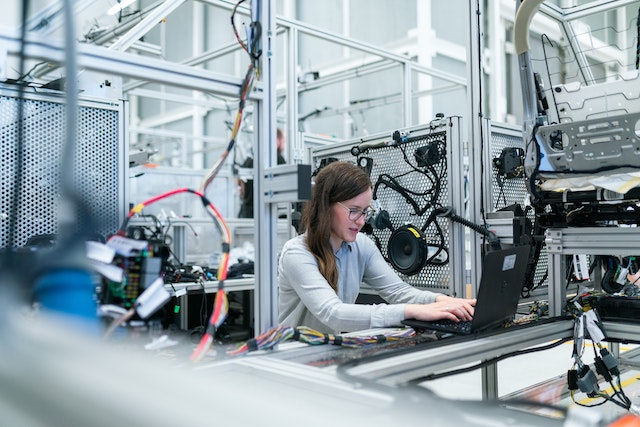
In an age where technological advancement is the cornerstone of many professions, having durable and reliable devices has become a non-negotiable aspect for many professionals. Ensuring that the tools of your trade can withstand the rigors of daily use saves money and can also be critical for productivity and safety. Here are five compelling reasons why durable technology is essential for various work scenarios.
1. Fieldwork Demands
Professionals venturing into the great outdoors for fieldwork, such as environmental scientists, geologists, or construction supervisors, often find themselves in unpredictable environments. These unpredictable conditions, ranging from pelting rain and swirling dust to searing heat or bone-chilling cold, necessitate equipment that can withstand such rigors without faltering. Enter the realm of rugged devices: technology specifically engineered with durability at its core. These devices are tailored to withstand many challenges, ensuring consistent performance even when subjected to harsh external factors. In essence, rugged technology becomes an invaluable ally for those whose office is the ever-changing terrain, promising reliability in the face of adversity.
2. Frequent Traveling
Professionals constantly on the move, such as consultants, journalists, or sales executives, face unique challenges that the average office worker might not. Amid the flurry of airport terminals, hotel rooms, and client meetings, their devices are subjected to a relentless cycle of being packed, unpacked, and often hastily stowed away, heightening the risk of accidental drops or impacts. For these jet-setters, durable technology isn’t a luxury but an absolute necessity. Devices boasting robust build quality, enhanced shock resistance, and extended battery life become paramount, ensuring their longevity and reliability. In a world where missing a single email or call can mean a lost opportunity, such resilient technology ensures seamless operation, no matter where their work takes them.
3. Critical Data Protection
In today’s data-driven world, some professions hinge critically on the secure storage and transportation of vital information. Consider health professionals whose daily routines involve the meticulous handling of confidential patient records or financial consultants who juggle sensitive financial data that could spell disaster if mishandled or lost. For these individuals, a mere device malfunction or damage could disrupt their workflow and compromise the privacy and integrity of the essential information they manage. This is where durable technology shines; it’s about physical robustness and enhanced data protection mechanisms. While safeguarding against the wear and tear of everyday use, these devices are also fortified with advanced security features, ensuring data remains protected from tangible damages and lurking cyber threats.
4. High-Intensity Work Environments
High-intensity work environments, such as construction sites, military operations, or research expeditions, often pose unique technology challenges. In these scenarios, delicate equipment can easily succumb to the rigors of the job, rendering them useless when needed the most. Rugged laptops, with their enhanced durability features, are specifically designed to withstand such demanding conditions. They offer traditional laptops’ computing power but are fortified against shocks, extreme temperatures, and other environmental adversities. These robust machines become indispensable assets in high-stakes professions where equipment failure is not an option.
5. Long-Term Cost Efficiency
From an economic perspective, the initial investment in long-lasting technology might seem rather substantial. Nevertheless, one must consider a more comprehensive picture of the finances. Devices not made to survive can soon become money pits for users, as they will have to repeatedly pay for replacements, repairs, and, in the worst-case scenario, attempts to retrieve their data. On the other hand, despite their higher initial cost, robust and durable gadgets often pay for themselves over time, owing to their lifespan. This durability results in fewer operational interruptions, decreased downtime, and savings on unanticipated maintenance or replacement charges. Consequently, investing in long-lasting technology can be both prudent and cost-efficient for firms and people concerned with their long-term financial well-being.
Conclusion
In the dynamic world of work, the tools and devices you rely on daily need to be as adaptable, resilient, and dependable as the professionals using them. Whether it’s the unpredictable nature of fieldwork, the urgency of high-intensity environments, or the sheer importance of data integrity, the call for durable technology is clear and justified. This demand transcends convenience, emphasizing efficiency, safety, and financial prudence. As industries evolve, the technology supporting them must not only match but anticipate their needs, and durability emerges as a paramount feature.